For years, I lived just minutes from a secret Japanese garden perched over the sea. I drove past it countless times, never stopping to step inside, until recently. Now, years later, I find myself facing the question: “Can you see tomorrow?”
All too often, it feels like we’re caught in a relentless current, doesn’t it? The endless to-do lists, the pressure to be productive, the internal voice pushing us to “get things done.” And all the while, we can miss some of the most beautiful experiences around us.
Probably like you, there are so many beautiful moments and profound experiences I don’t want to miss out on. That moment of quiet satisfaction with life, or a smile of admiration for the amazing people around me. Yet, life gets so undeniably busy, and we convince ourselves we can just catch them next time. Unfortunately, that “next time” often never comes, and we end up missing so many beautiful things along the way.
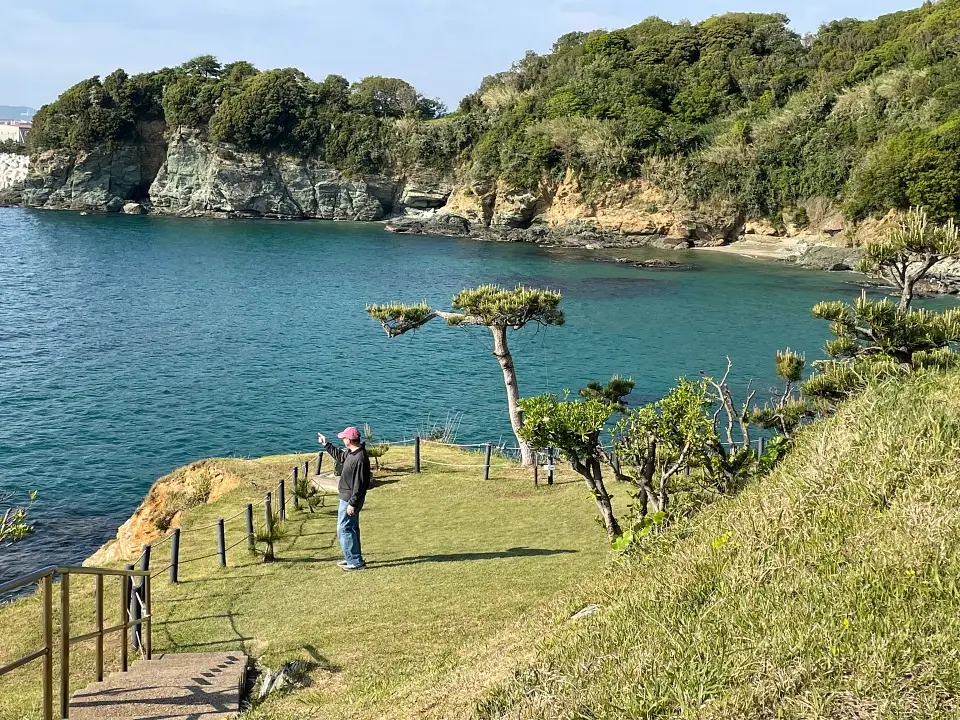
Here’s what I wish someone had told me back then: Japan isn’t just a destination to check off your list. It’s a mirror that reflects back what you’re really seeking. And if you’re not careful, you’ll spend your entire trip looking at Japan instead of letting Japan look at you.
This garden, Bandoko Teien, was practically in my backyard when I lived in Japan. During those years, I spent my days diligently teaching students, grappling with a new language, and making sure my family had what they needed. It felt like I was constantly doing, rarely being. Now, visiting years after our time of living in Wakayama, my dear wife brought me to this beautiful, hidden Japanese garden, and it asked me a question that made me pause: “Can you see tomorrow?”
From Vigilance to Tranquility: Bandoko’s Unique Story
Bandoko Teien, nestled on a distinctively long, flat cape called the “nose of Bandoko,” juts gracefully into the shimmering Wakaura Bay in Wakayama City. Surrounded by the sea on three sides, the panoramic views took my breath away.
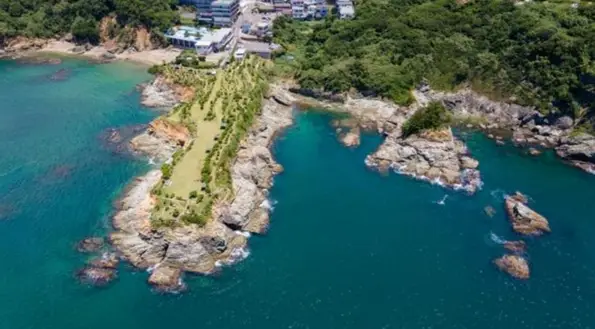
While its serene beauty feels timeless today, Bandoko has a fascinating past that travelers like you will appreciate. Its name literally means “guard place” or “lookout station.” This cape was strategically vital for the Kishu domain, a powerful branch of the ruling Tokugawa clan. In the mid-19th century, with the arrival of the American “Black Ships” shaking Japan’s isolation, coastal defense became paramount. As the closest lookout post to Wakayama Castle, Bandoko served as a crucial vantage point for monitoring approaching vessels.
What strikes me now, looking back, is the profound transformation. A place once dedicated to watchful defense, to anticipating threats from the horizon, now offers an expansive invitation to look out at that same horizon and find profound peace. The dramatic views that once demanded hyper-awareness now encourage a different kind of focus: one of quiet contemplation and boundless possibility. Even feudal lords, recognizing its inherent beauty, used the area for relaxation, a subtle hint of its dual nature as both a strategic point and a place of respite.
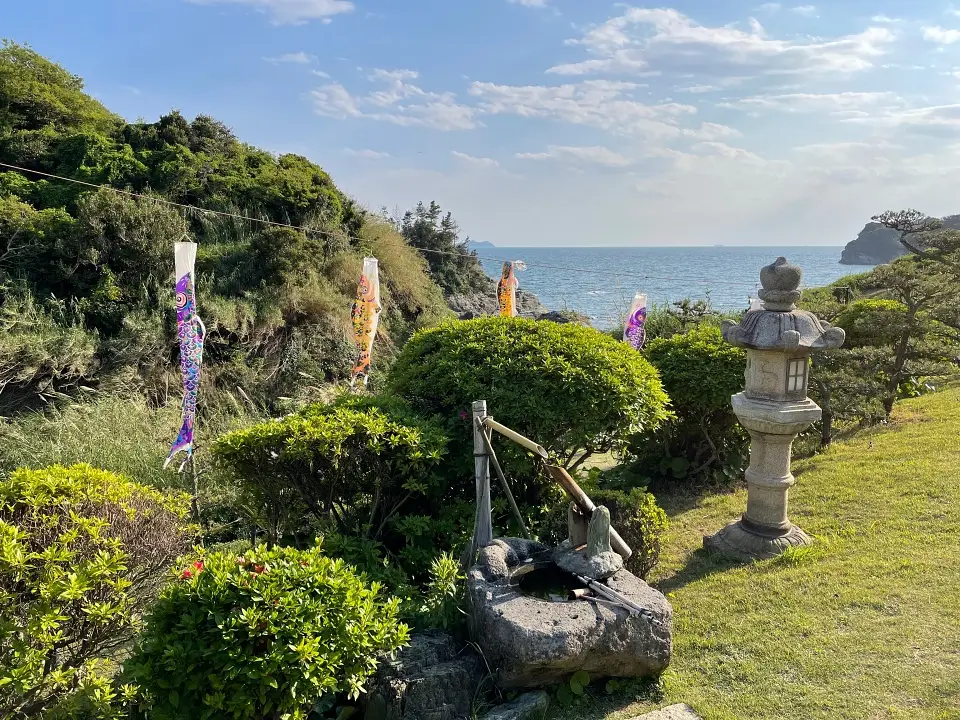
While Instagram is flooded with images of crowded Kyoto temples, places like Bandoko Teien remain virtually unknown to international travelers. For now.
“Can You See Tomorrow?” - A Garden’s Profound Question
One of the most powerful elements of Bandoko Teien, for me, is a rock structure with an engraving that asks, “明日が見えますか” (ashita ga miemasuka), translated as “Can you see tomorrow?” There’s even a small hole in the rock where you can look out beyond the ocean, as if peering into the future.
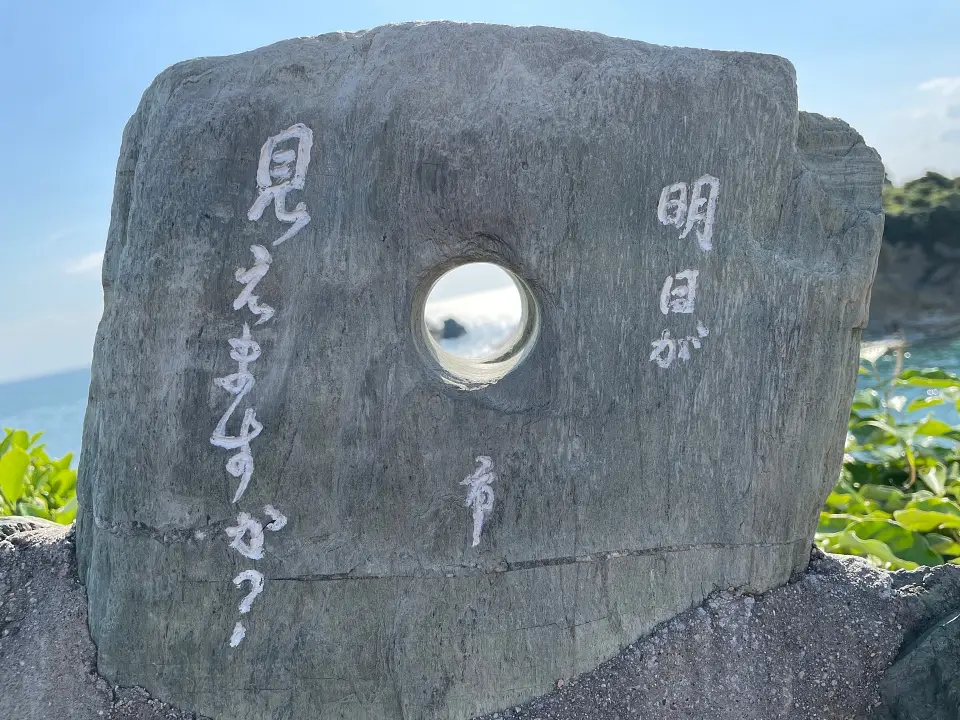
This wasn’t just a symbolic question for me; it was a gentle yet firm nudge to stop and consider what I was doing today. It helped me pause the endless current of activity and reconnect with the beauty around me: in nature, in relationships, and in the boundless opportunities of the future.
If you, like me, ever find yourself caught in the daily grind, or even caught in the travel grind of rushing from one must-see attraction to another, recalibration is necessary. It prevents us from losing sight of what’s truly possible for tomorrow (or even what’s beautiful right now). So, I encourage you to ask yourself this question. If you struggle with it, please know that all of us do at times. It’s part of the human journey.
This is where the magic of Japanese gardens truly comes alive. Bandoko Teien, like many traditional Japanese gardens, is more than just a beautiful landscape. It’s a meticulously crafted space designed for introspection and mindfulness, likely rooted in Zen philosophy. These gardens are living compositions that invite us to slow down, to notice the subtle interplay of stone, water, and plants. They offer a rare opportunity to quiet the external noise and find a deeper connection to our inner selves. That sense of quiet rest and serenity is a gift waiting to be received.
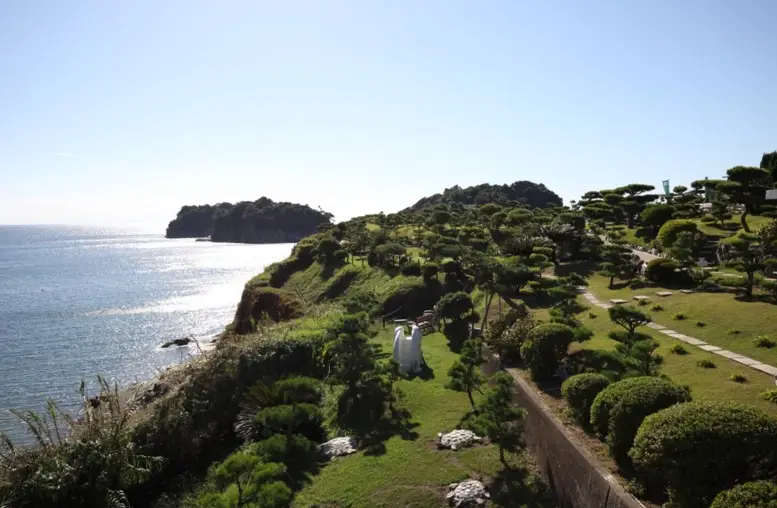
The Japan Trip You’re Not Planning (But Should Be)
Beyond reflection, Bandoko Teien also offers other delightful ways to connect with its unique setting. For families, there are places to go fishing down below, offering the chance to catch fresh local fish. There are also barbecue pits by the side of the garden, where visitors can grill meat and vegetables, enjoying an afternoon feast accompanied by the refreshing ocean breeze and the relaxing garden atmosphere. It’s a wonderful reminder that serenity can be found not just in quiet contemplation, but also in shared moments of simple joy with those close to us.
Perhaps you want to get that photo in Kyoto to put on Instagram, just like so many thousands of other travelers do. But if you consider visiting other places, you will get the chance to experience the tranquil and transformative experience of a real side of Japan found in these Japanese gardens like Bandoko Teien, and you won’t have to wait in line for that Instagram selfie.
Your Invitation to Tranquil Discovery
Your Japan itinerary is probably already packed with must-see temples and famous districts. I get it; I was the same way. But what if your next trip offered something more? What if it offered a moment that truly stays with you, a deeper connection not just to the country’s beauty, but to your own sense of self?
I’m asking you to do something different. Schedule nothing for one afternoon. Seek out a Japanese garden. It doesn’t have to be Bandoko Teien, though venturing slightly off the well-trodden path often reveals Japan’s most authentic and deeply moving experiences. Once there, slow your pace. Walk quietly. Sit still. And in the quiet beauty, ask yourself that ancient question on the stone: “Can you see tomorrow?”
These meticulously crafted spaces possess a mysterious magic. They are living antidotes to our busy modern lives, inviting us to stop, to be truly present, and to feel better centered for tomorrow. It’s in these moments, when you stop rushing toward the next attraction and start receiving what’s being offered, that you truly meet Japan. It’s a unique opportunity to rediscover a quiet pace and profound connection that we often don’t realize we’re missing. Don’t let these precious opportunities pass you by.
Because here’s the truth: Tomorrow isn’t promised. But in a Japanese garden, if you’re paying attention, you just might catch a glimpse.
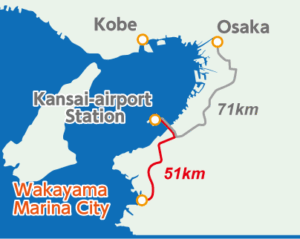 Oh, and on a practical note if you are wondering, the Japanese garden, Bandoko Teien, is about 45 minutes from Kansai Osaka Airport and about 1.5 hours from Osaka. The entrance fee costs 600 yen for adults and 300 yen for children.
Oh, and on a practical note if you are wondering, the Japanese garden, Bandoko Teien, is about 45 minutes from Kansai Osaka Airport and about 1.5 hours from Osaka. The entrance fee costs 600 yen for adults and 300 yen for children.